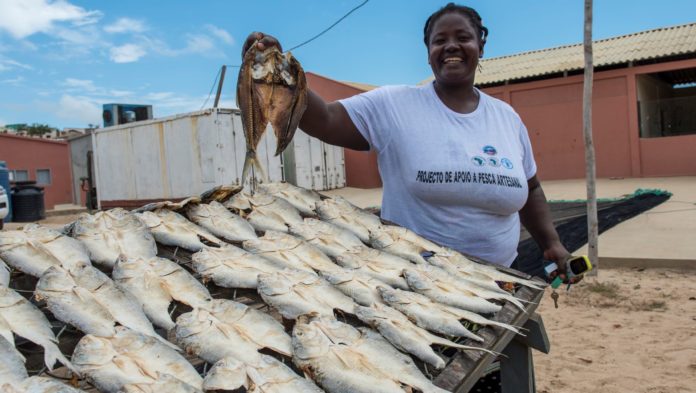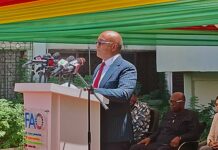At the recent opening of a workshop on Participatory Management of Community Cover and Integration, Victória de Barros, Angola’s Minister of Fisheries and the Sea, said that the Executive is committed to giving greater quality of life to Angolan communities dependent on fishing by investing in infrastructure and training to support the sector on good practices and sanitary conditions for the handling of fish.
According to her, the artisanal fishing subsector continues to be the driving force behind the economic and social progress of communities in Angola.
As with most oil-dependent countries in Africa, the collapse in the price of crude oil in 2014 placed immense strain on Angola’s economy, forcing it to consider the option of diversification. With a 1,600km Atlantic coastline, fish is a readily available resource in the South African country.
The domestic fishing sector has always had a strong potential for employment and income generation, but it has struggled for years due to a lack of attention and investment from the government.
When President João Lourenço assumed office a year ago, he promised to upturn Angola’s waning economy declaring that his administration will relaunch the sectors of aquaculture and agriculture as a way to grow its economy. So far, President Lourenço seems to be making good on that promise with investments being made in the acquisition of a Fishery Research Vessel, cold equipment, the establishment of new artisanal fishing centers and the renovation of old centres – all part of the Artisanal Fisheries Support Project in partnership with the African Development Bank (AfDB).
The support project for small-scale fishing is being developed in seven coastal provinces of the country to support fishing in communities where their livelihood is mainly fishing. Valued at $38 million, with the AfDB financing 80 percent of the cost and Angola, 20 percent, the project aims to increase the incomes of artisanal fishers and traders, especially women, by improving the quantity and quality of fish landed and traded through marked improvements in fish landing and handling facilities.
It also aims to combat poverty and hunger by building fishing infrastructures, training and sustainable environmental management.
Currently, four centres are being built in Benguela (Egypt Beach), Cuanza Sul (in the salt flats), Bengo, and in Zaire (Nzeto), all equipped with cold equipment, solar and public energy to support artisanal fishing (CAPAS). In addition to the eight centres previously built, the new centres will bring all artisanal fishing centres in Angola to 12.
Earlier in the year, de Barros announced plans for the establishment of a new port with refrigerated storage in Tombwa, Namibe at a cost of $23.5m.
The Angolan government is looking to increase the annual fish catch by 16 percent over the next four years to 614,000 tonnes and also aiming for a 50 percent increase in fishmeal production to 30,000 tonnes over the same period.








